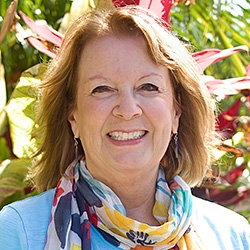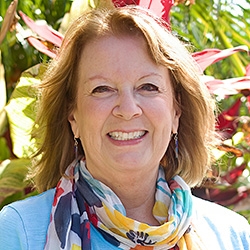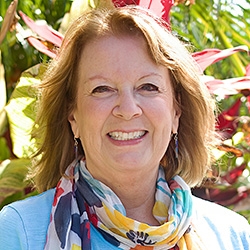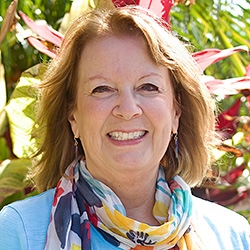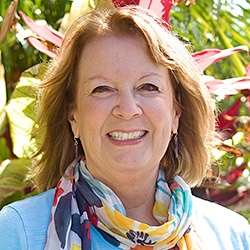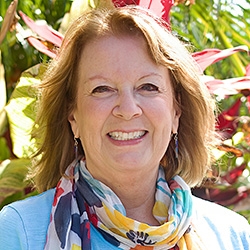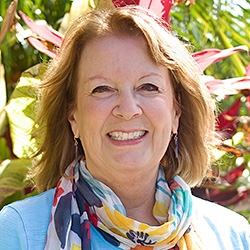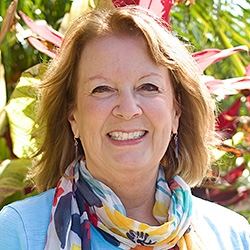

Search Results: awareness
-
A structured and clear contemplative practice can start with calming the body, heart, and mind for 20 minutes. Next, it contains at least three key elements: body awareness, clarifying what you already know, and consistent sustained attention. Celebrate and note insights, or any expanded perspective that pops into your awareness. Set an intention to notice these things in daily life and to practice further.
-
Control may help us feel safe in an unpredictable, unsafe, wild world. Wanting control may be a response to shielding ourselves from feeling fear and being aware of our vulnerability. The more we insulate from fear, discomfort, and vulnerability, the more we are cut off from aliveness; we can become more anxious, and depressed. The more we control the more we are disconnected from empathy and care. With aliveness come joy, peace, love, awe.
-
Trainer Tip: Mindfulness, focusing on what's happening now, is the foundation of Compassionate Communication. The more present we are, the greater the chance we will be aware of our needs and meet them, thus the greater opportunity for joy. Connect to your feelings and needs at least four times today. Notice how differently you conduct your day when you are mindful.
-
Exploring how blame hides our inner voice and fuels pain through self-judgment and stories.
-
Trainer Tip: NVC asks us to be aware of our needs and discomfort is evidence of an unment need. However focusing on ourselves when we're uncomfortable isn't always the best choice.
-
Trainer Tip: Autonomy is not a need, but rather a way of living. We always have choices in life, even if none of them appeal to us. Becoming aware of our choices and taking responsibility for them leads to greater joy and empowerment.
-
Trainer Tip: Mary explains the NVC principle known as the "protective use of force."
-
Find renewed aliveness and connection in your daily life through NVC and Buddhist Mindfulness practices.
In this 6 session course with Roberta Wall and Barbara Bash, you will explore how NVC helps bring to life Buddhist principles and values in relationship to yourself and others. And, you will discover how Buddhist practice deepens and supports your capacity to learn and live NVC in your daily life. -
In this book excerpt, Kathleen and Jared offer a path to reach deeper clarity, distinguishing between freedom and submission / rebellion.
-
- Easier and steadier access to presence, awareness and self-connection in relationships and challenging situations
- Illumination of basic Buddhist and NVC principles
- A deeper understanding of how to live the Buddhist precepts of non-harming, mindful speech and deep listening
- An introduction to useful tools for families and communities to create a culture of Nonviolent Communication
-
Total inclusion is impossible: inclusion of all can often lead to exclusion of those who can't bear the behaviors of some. Many groups flounder and disintegrate because of too much inclusion. Limited resources and capacities may make it necessary to exclude. Keeping more coherent shared values and strategies may be another reason to place membership conditions so that what appears to be exclusion may give movements a chance to expand.
-
As parents, we often face challenging situations on a daily basis and struggle to create what we most long for. In this 6 session telecourse recording, you will learn how Nonviolent Communication can support a family culture where cooperation, trust, and peace are nurtured, and children and parents can flourish together.
-
Are you finding yourself grappling with the NVC model despite your familiarity or practice? Do you often feel stuck or find it challenging to make it feel natural or authentic in your interactions?
Let CNVC Certified Trainer, Dian Killian, guide you towards embodying the essence of NVC—a mindset of connection and collaborative engagement. Through her expertise, you'll discover invaluable insights tailored to make your NVC practice truly your own. From uncovering intuitive methods to discern feelings and needs, to seamlessly integrating NVC principles into your everyday speech, Dian empowers you with insider tips for authentic connection.
-
Self responsibility is owning what's yours. It involves identifying your observations, evaluations, feelings, longings, and more. When we identify what's truly ours we are unlikely to mistake it as coming from outside of us. Self responsibility is not self blame. Without self responsibility, we project, blame and judge. Self-responsibility is central to clarity and full self-awareness. This exercise will guide you there.
-
Kristin Masters explores how to approach goal-setting and self-reflection with compassion and mindfulness grounded in NVC principles. She encourages you to examine how conscious choice plays a role in how we treat ourselves and others.
-
Rachelle Lamb invites us to consider how our well being is impacted by what we choose to put at the center of our narrative regarding our needs. And how that affects whether or not we get closer to truly serving life and compassion...
-
Trainer Tip: On a scale of 1 to 10, how is your emotional bank account? If it’s lower than you like, consider what you can do right now to bring it closer to balance. Everyone in your life, and most especially you, will benefit from this. Even 15 mins of empathy may nourish you with accompaniment and perspective, even when the issues or circumstances in your life are the same.
-
Trainer Tip: Whether we listen to our own or the other person’s needs first, connecting to needs can help us release judgments of others, see their humanness, help us to begin to hear them and ultimately connect to them. Be aware today of times when you are judging someone. Then be aware of your own needs to improve your connection to them.
-
Trainer Tip: It's important to design requests to fit specific needs. Otherwise people may do exactly what you ask and still, your needs may not get met. Before you make a request of someone, notice if the strategy you are considering is likely to meet your needs. If not, consider making a different request that may be more satisfying to you.
-
Trainer Tip: Sometimes our actions keep us from meeting our needs. Let’s say you long for connection with others, but you are also afraid of it, so you push people away. Then you tell yourself that no one likes you, resulting in depression and self-criticism. Self-empathy can help clarify what we truly want rather than focusing on what is wrong with others or ourselves, and help us align in ways more likely to meet our needs.

Quick Links
Subscription Preferences
Stay In Touch!
Looking for ways to keep up with NVC Academy news, get special offers, free resources, or words of inspiration? Here are five ways to stay engaged:



